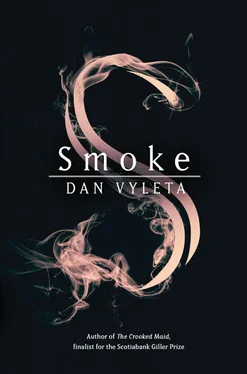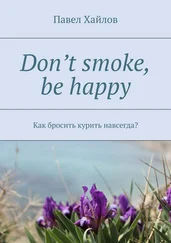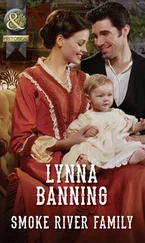It leaves her with another riddle.
ф
It is Francis who helps her solve it. The silent son. She hears his voice for the first time when he comes to look in on Thomas and stands whispering to Lizzy. She herself is sitting some yards away, near the doorway of the sick chamber, leaning her back against the tunnel wall. She does not try to follow the conversation. Her ears are latched on to a different sound, issuing from the cracks and crevices of the rockslide that separates them from the mine proper. Beyond lies the lovers’ cave. Of late it has drawn her. Its sounds are distant; soft. Talk, sighs. Quiet laughter. And, once in a while, a smothered moan that tugs at her very skin. It takes her a while to put a name to it. The sound of letting yourself go. It is not a sound she can imagine herself ever making.
Francis approaches. His step is near-silent but she hears him all the same, can gauge the distance at which he comes to a stop. She is like a bat now, attuned to the dark.
The comparison makes her smile.
“Are you getting on all right?” he asks.
“I thought you were mute.”
“Only on top. Down here I’m a regular chatterbox.” They are speaking in whispers, are barely audible to themselves. And yet she can sense purpose underneath his banter. “I want to show you something. Out there, in the mine. But you’ll have to change into miner’s clothing.”
“Now?”
“Soon. At the end of the shift. It’ll be safest then.”
On his instructions, she locates a shirt, jacket, cap, and breeches in one of the storerooms, then changes in the dark. How odd that she can do so, not even closing the door: strip half naked, with no thought to her modesty. Francis remains where she left him, out in the tunnel near the rockslide. He asks whether she is ready and instructs her to tuck her hair beneath the cap. The next moment he has taken hold of her hand. It’s so intimate a gesture, she feels herself stiffen.
“You don’t need to be afraid of me,” he reassures her. “It’s nothing like that. I already have a girl. A real talker, just like me. Hush now. It isn’t far.”
Without further explanation he tugs her after him, first through the twisting path between the fallen rocks, then out into the lovers’ cave and the corridor beyond. Nothing stirs.
He lights his lamp, rushes almost to the point of running, tugging her down a series of corridors. Once he stops short, smothering their light, and waits for a group of haulage women to pass in the distance, each bent double and pushing their loads. Not one of them shoots them a glance.
“They shouldn’t be here,” Francis rasps. “Their shift is over. And Father tweaked the work rosters for the next shift, to make sure nobody’d be around.”
“Did they see us?”
“Let’s hope not. Management has its people in every work crew. They spy on us, make sure we don’t slack off. No politics allowed, no talking, a quarter hour for lunch.” He curses softly, rekindles the light. “Never mind. We are almost there.”
Soon after, they arrive: a long, narrow room, well supported by timbers. A dank animal smell hangs in the air; the sound of breathing, oddly heavy and many-mouthed. Much of the space is given over to a row of wooden pens. As the lamplight strafes them, it picks out the outline of a snout. Tender pink flesh frames the flared holes of two nostrils. A whinny sounds.
“Horses?” Livia asks, uncertain.
“Pit ponies. Here, let’s give them a treat.”
Francis digs in his pocket, retrieves a few carrots. He passes one to Livia. When she lifts it up to the window of the first pen, a pony’s head emerges out of the shadow, teeth bared. Its lips brush her fingers as the animal tears the carrot from her grasp. It turns to eat, like a dog protecting its bone. In the pen next door, its neighbour kicks its hoofs against the wooden gate. It has sniffed the carrots and wants its share.
“What do you think of them?” Francis asks, as he goes along, distributing treats.
“They are stunted and dirty. Their legs are bandy.”
“Mam says it’s because they get no sun.”
“You don’t take them up?”
“Rarely. The lift terrifies them. Some literally die of fright. And when they get outside, well, some of them go mad. They will run till they drop with exhaustion. Others just stand there, shivering, closing their eyes against the sun.”
She searches his face while he says it. He, in turn, is looking at her very closely, as though waiting for her verdict.
“It’s sad,” she says at length.
The young man nods. “Yes.” His eyes are expectant, waiting for her to say something more.
“Why take me here, Francis? It’s an awful risk to take, just to show me some sick animals.”
He nods, shrugs, keeps his eyes on her.
“What do you think of it?” he asks obliquely. “Our life in the mine?”
She starts answering, falters, feels herself back away from the light of his lamp. There’s a thought that has grown in her, almost without her noticing. Now it wants out.
“You’re free,” she says. “I did not understand it at first. Your love of total darkness, the reluctance to light any lamps — it’s not just fear of gas, or of discovery. It’s a way of life. Almost a religion. You are building a kingdom. Beyond the rule of Smoke.” She pauses, eyes the ponies. “And yet, it is doomed.”
He nods, keeps the lamplight on her face across the three-step gap she has opened up.
“Yes, we are free down here,” he says at last. “But man is not meant to live in the dark.”
He reaches forward suddenly, encircles with his left hand the glass of his lamp, keeps it there. Shadows fill the room, swallowing her; his hand glowing red, leaking pink at the fingers; beyond it the light sits white in his twisted face.
It’s hot , she realises, the glass is burning his skin. But why. .?
As though in answer a cloud of dark rises out of Francis, his pain converted to sin. He lets go of the lamp, steps over to her, wafting Smoke threads at her like incense. She sees it but cannot smell it; remains unmoved in her blood. All at once she is back with Charlie, mouth locked to mouth, her body tingling with Smoke.
“It does not smell, nor infect,” she whispers. “It’s as though it’s dead. But how can that be?”
“We think it’s the coal dust. It filters it somehow. So it’s everyone smoking for themselves. Unseen, unheeded. Miners dying, fighting, making love. All alone.”
“But that’s good, surely. Better than on top.” She looks for the word, finds it. “Tidier.”
“Tidier? Yes, perhaps. My brother, Jake, he has a word for our life down here. He calls it ‘democracy.’”
Democracy. She knows the term, has read its definition in one of her father’s translations from the Greek. Democracy, Aristotle says, is the rule of the many: hence of the poor. It leads to chaos, greed, and desolation.
“Will you take arms?” she asks suddenly. “Rise up?”
“How can we? Yours is a race of angels. Fair cheeks, hands like marble; linen as white as the day it was spun.” He shakes his head, in wonder not anger. “Down here we can curse you and plot revolt. But up in the sun? Oh, there too we have our jokes. We laugh and mock. But who is so coarse not to be shamed by your skin? God chose you, made you special. You rule us not by force but through this simple fact.” He leans closer, eager now that she understand him; a quiet man talking. “We must cower underground, just to learn boldness.”
His voice is so earnest, his words so carefully chosen, he reminds her of one of her schoolmasters, Professor Lloyd, who teaches philosophical theology. But Francis is a commoner, a miner’s son, unschooled in Discipline. He has never studied Leibniz’s theodicy or Kant’s Three Discourses on Smoke .
Читать дальше












